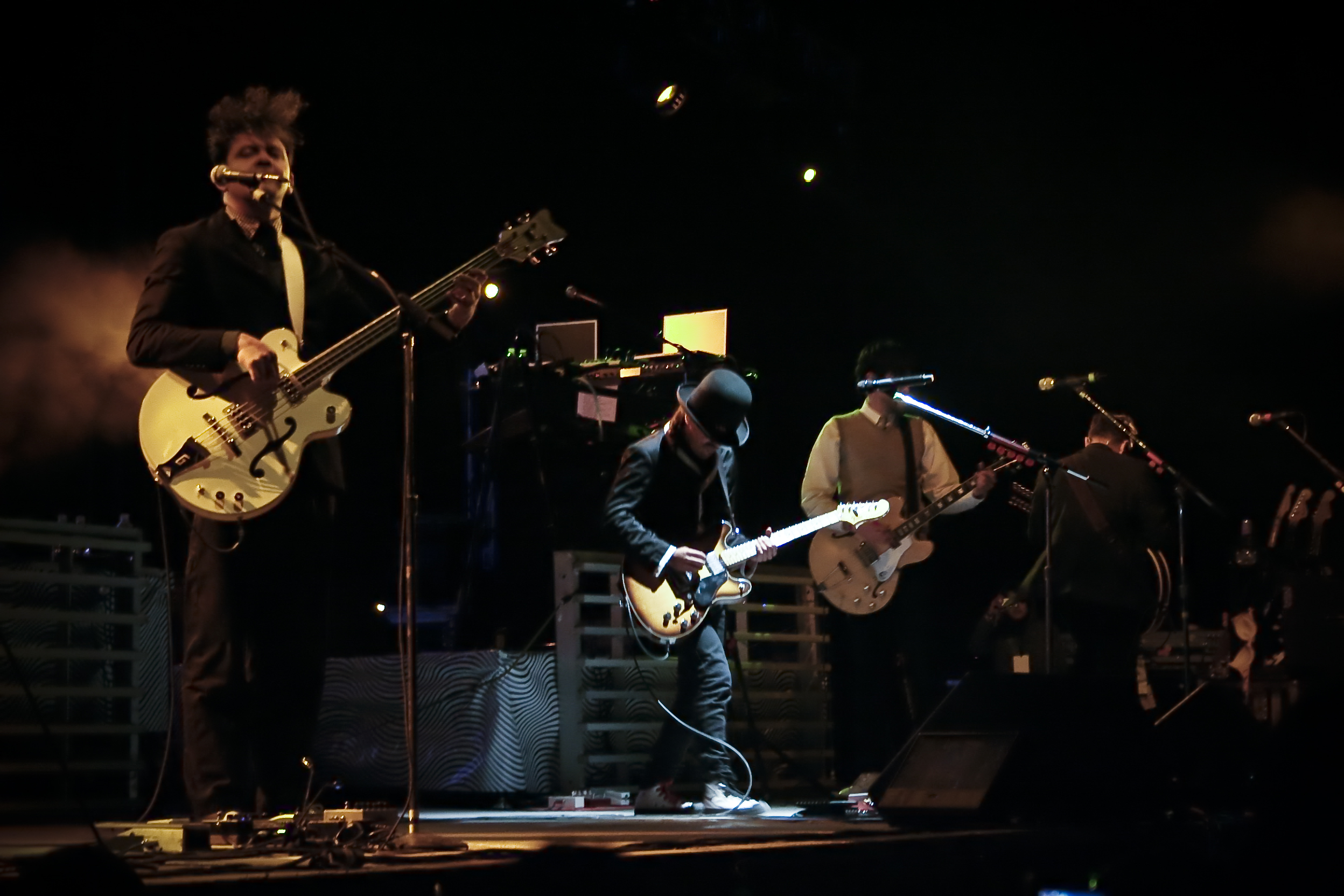
Café Tacuba
Café Tacuba (pronounced kaˈfe taˈkuβa), stylized as Café Tacvba, is a band from Naucalpan de Juárez, State of Mexico. The group gained popularity in the early 1990s.[1] They were founded in 1989, before they had the current lineup of Rubén Isaac Albarrán Ortega (lead vocals, rhythm guitar), Emmanuel del Real Díaz (keyboards, piano, programming, rhythm guitar, melodica, vocals), José Alfredo "Joselo" Rangel Arroyo (lead guitar, vocals), and Enrique "Quique" Rangel Arroyo: (bass guitar, electric upright bass, vocals), their friend Roberto Silva played the keyboards for a short period of time. Since the Cuatro Caminos World Tour, Luis "El Children" Ledezma has played the drums in every concert but is not considered an official member of the band, as well as Ramiro Del Real Díaz, who joined the band as a support musician playing the guitar since 2015.
Café Tacuba
1989–present
Warner Music Mexico (1992–1999)
Universal Music Mexico (2003–present)
Rubén Albarrán
Emmanuel del Real
Enrique Rangel
Joselo Rangel
Themes[edit]
Café Tacvba is also seen as a strong advocate for various causes due to the important social and political messages they discuss in their music. The themes of environmental justice and communal welfare are especially prevalent. In their song "Trópico de Cáncer" (1994), for example, the band references the disaster of San Juan Ixhuatepec, a catastrophic explosion of liquid petroleum gas tanks that killed 500–600 and injured 5000–7000 people on November 19, 1985. In "Trópico de Cáncer," Café Tacvba calls for a return to indigenous values of nature and community over the industrial capitalism responsible for so much suffering. This theme is apparent in the chorus of the song:
“Por eso yo ya me voy
No quiero tener nada que ver
Con esa fea relación de acción
Construcción, destrucción, ah, ah”
as well as other sections such as:
“Ay, mis compañeros, petroleros mexicanos
No crean que no extraño el olor a óleo puro
Pero es que yo pienso que nosotros, los humanos
No necesitamos más hidrocarburos” (Café Tacvba- Trópico de Cáncer [12])
Genre[edit]
Their musical style covers a wide variety of genres, though it is most commonly labeled as Latin Alternative/Rock en Español. Their music has been heavily influenced by Mexico's indigenous population and folk music traditions, but also by punk and electronic music and other bands on the Mexico City scene. Perhaps the most distinctive feature of their music is Albarrán's nasal voice, which, combined with his impressive lung capacity (as demonstrated on "La Ingrata", a homage of norteño music), makes for a very distinctive sound. They sing entirely in Spanish but have a significant Anglophone following regardless.
The song "Chilanga Banda" has a hip-hop beat under a stream of Mexico City slang originally written by Jaime López, "María" is a 'bolero' ballad about a ghost, "El Fin de la Infancia" a brass-heavy 'banda ranchera' sound that reflects the influence of 'banda sinaloense', "Desperté" has a tango-driven melody while "El Borrego" mocks speed metal.